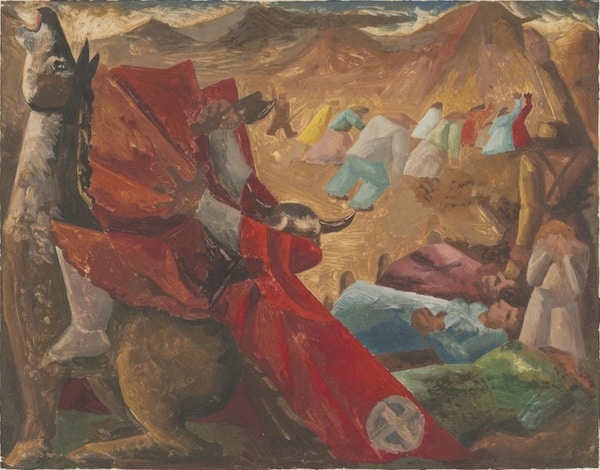Dear friends,
Greetings from the desk of Tricontinental: Institute for Social Research.
On an evening in September 2024, Argentina’s President Javier Milei stood before a large crowd in Parque Lezama in Buenos Aires. He wore his signature dark leather jacket and barked out his speech, the crowd devouring every word. ‘Here you have the trolls’, he said, ‘corrupt journalists, shady characters. These are the trolls’. Then, he pointed at the people in the crowd and said that they were invisible because the journalists had ‘the monopoly on microphones’. It was harsh language, a replica of Donald Trump’s statement that journalists are the ‘enemy of the people’ (which is itself an echo of U.S. President Richard Nixon’s statement to his advisor Henry Kissinger in 1972: ‘The press is the enemy. The press is the enemy. The establishment is the enemy. The professors are the enemy. Professors are the enemy. Write that on the blackboard 100 times and never forget it’). These statements do not come without cost. Since Milei came to office in December 2023, attacks on journalists have increased.
Argentina has a painful history. It has struggled with military rule for nearly a quarter of the past century: 1930—1932, 1943—1946, 1955—1958, 1962—1963, 1966—1973, and 1976—1983. The most disturbing of the series was the last, in which a military junta of the army, navy, and air force commanded the country for nearly eight years, disappeared (a polite way to say murdered) at least 30,000 people, and stole hundreds of babies from left-wing families. Almost all of my generation of the left was murdered by that dictatorship.
The dictatorship had a chilling name: the National Reorganisation Process. This ‘process’ meant the bloody removal of the entire country’s left wing, from trade unionists to communists to journalists (all the art in this newsletter is from Argentina’s communist painters and photographers, a tribute to their wide-ranging talent). In an astonishing letter to the country’s military leaders, the journalist Rodolfo Walsh wrote of the mass murders,
you plan them at the highest level, discuss them in cabinet meetings, order them as commanders of the three [military] branches, and approve them as members of the government junta.

Forty-eight years ago, on 25 March 1977, fifty-year-old Rodolfo Walsh died in the Navy School of Mechanics (ESMA), where he had been taken after being shot repeatedly by a squad of soldiers at the intersection of San Juan and Entre Ríos avenues in Buenos Aires. Walsh had just posted several copies of his letter to the junta when they found and shot him. When one of the shooters, Ernesto Weber, was brought to trial decades later he said,
We took Walsh down. The son of a bitch took cover behind a tree and defended himself with a .22. We shot at him with bullets and he didn’t go down, the son of a bitch.
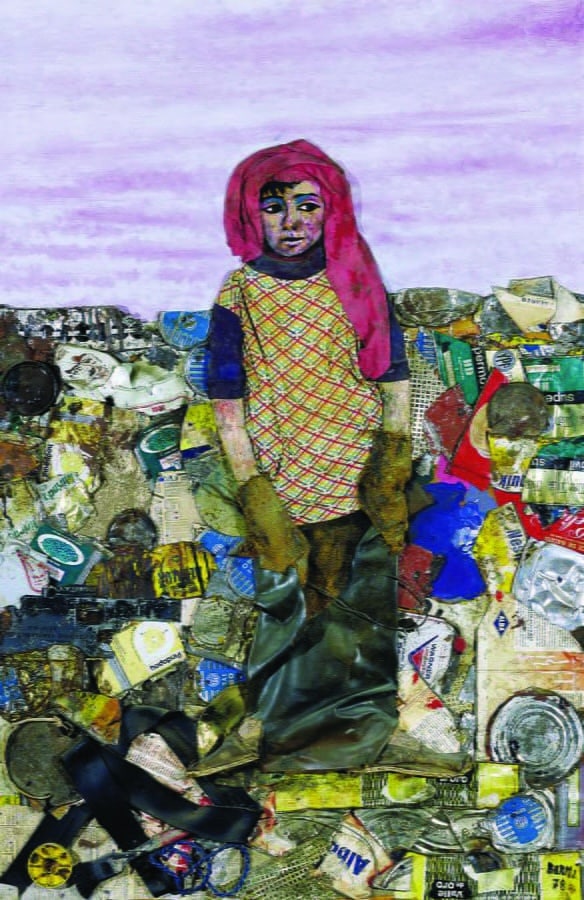
José Antonio Berni (Argentina), Juanito ciruja (Juanito the Scavenger), 1978.
Several years ago, a young reporter wrote to ask me to send her a list of journalists whose writing I admired. I dug around in an old notebook and found the list I had made for her. It is not very long, with just ten names: Wilfred Burchett, Eduardo Galeano, Ryszard Kapuściński, Gabriel García Márquez, John Reed, Agnes Smedley, Edgar Snow, Helen Foster Snow, Rodolfo Walsh, and Ida B. Wells. A few features unite the work of these journalists: first, they rejected the stenography of the capitalist press and wanted to tell the stories of the world from the standpoint of the workers and the peasants; second, they not only described events but placed them within the great processes of our time; third, they did not only write but crafted their stories, their emotional palate informed by their sense of what the reader needed to know; and, finally, they did not only write from the standpoint of the beleaguered but believed them and wrote about the struggles of our world with sincerity and not irony. Burchett, an Australian, was the first non-Japanese person to enter Hiroshima and announce the actual effects of the nuclear bomb to the outside world; Márquez, a Colombian, ripped apart the lies of his government and told the true story of the men on the naval destroyer Caldas who died in the Caribbean in 1955; and Wells, from the United States, detailed the horrors of lynching, which became the way that racism continued the structure of chattel slavery even after it had been formally abolished. These were great writers with immense stories to tell. It is hard not to admire them.
Among these writers was Walsh. Though I only knew him for his book Operación Masacre (Operation Massacre, 1957) and the final letter he wrote before he was assassinated, that one book about that one incident was sufficient to cement his reputation.
Walsh was not intrinsically a man of the left. He liked chess and puzzles. One evening, at a café where he was playing chess, Walsh heard that there was a survivor of a brutal killing at the edge of Buenos Aires of some men accused of fomenting an armed revolt against the military officers who had overthrown President Juan Perón in 1955. A few days later, Walsh found the survivor, Juan Carlos Livraga, and heard his story. It changed everything. Walsh was now a journalist addicted to a story.
That story began on 9 June 1956 when several men gathered in the neighbourhood of Florída to listen to a boxing match on the radio. It was not any boxing match. Argentinian Eduardo Jorge Lausse, who would defeat the Cuban legend Kid Gavilan later that year, in September, faced off against the Chilean middleweight champion Humberto Loayza in Buenos Aires’ Estadio Luna Park. What the men listening to the radio did not know was that there was going to be an uprising that night led by military officers loyal to Perón. They had no part in it. Nonetheless, soldiers arrived at their street, arrested them, took them to a dump, told them to run, and then shot at them. Seven survived, running for their lives or playing dead among trash.
When Walsh got the tip, he hired the journalist Enriqueta Muñiz (1934—2013) to work with him on the story. Her notebooks, published in the 2019 Historia de una investigación. Operación masacre de Rodolfo Walsh: una revolución de periodismo (y amor), or History of an Investigation. Operation Massacre of Rodolfo Walsh: A Revolution of Journalism (and Love), details their methodological search for the survivors and their stories. They found out, for instance, that the arrests took place before a state of emergency was declared, yet the murders took place afterwards. This meant that the military had carried out a cold-blooded murder of working-class men who had nothing to do with the political events of that night. They just wanted to hear their guy, Lausse, put Loayza down on the mat.
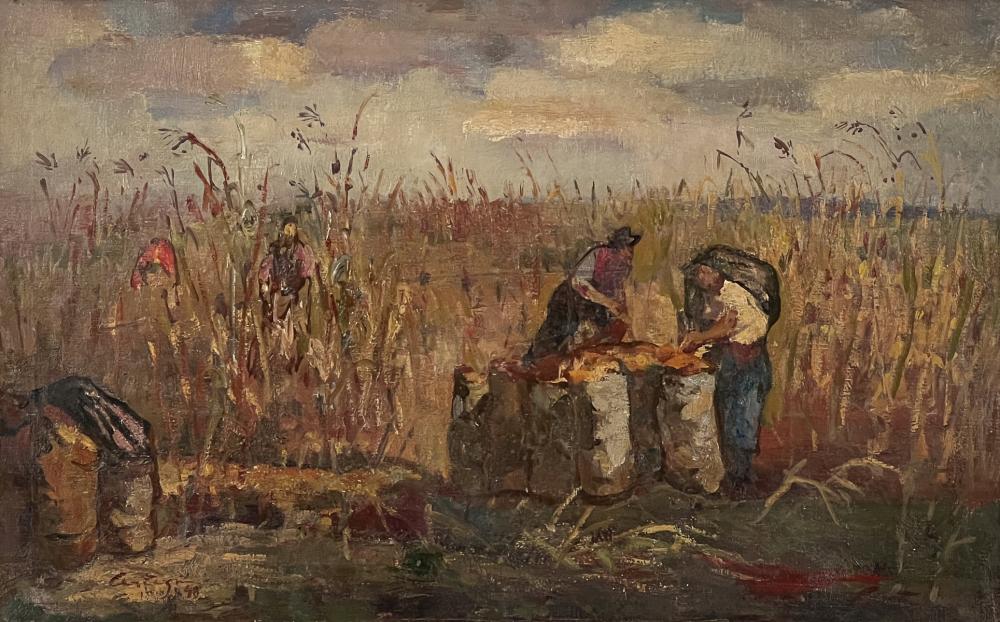
Juan Carlos Castagnino (Argentina), Maizal (Maize Harvest), 1948.
No major outlet wanted Walsh’s story. He published a flurry of articles in a range of small periodicals, such as Mayoría and Revolución Nacional, until finally Ediciones Sigla brought out Operación Masacre (which he dedicated to Muñiz). Walsh and Muñiz wanted the men responsible for the murders arrested, but it simply did not happen. One of the culprits, police chief Colonel Desiderio Fernández Suárez, died unscathed in 2001.
In 1959, Walsh went to Cuba, found the revolution bracing, met his fellow Argentinian Che Guevara, and—with his love for puzzles—decoded the U.S. signals that then warned the Cuban government about the invasion at the Bay of Pigs in 1961. In Cuba, Walsh worked at Prensa Latina, the Cuban state’s news agency, before joining the editorial board of Problemas del Tercer Mundo (Problems of the Third World, run by dissidents of the Argentinian Communist Party) and then editing the newspaper of Argentina’s General Confederation of Trade Unions (CGT), which ran from May 1968 to February 1970. While working at the CGT, Walsh investigated the murder of Rosendo García on 13 May 1966. García, a leader of the metalworkers’ union, was killed in a shootout with fellow unionists led by Augusto Timoteo Vandor, who was himself shot to death in 1969. Walsh wrote two books about murders that defined Argentina’s politics: ¿Quién mató a Rosendo? (Who Killed Rosendo?, 1969), about the killing of García, and Caso Satanowsky (The Satanowsky Case, 1973), about the 1957 murder of the lawyer Marcos Satanowsky by the state intelligence agencies.
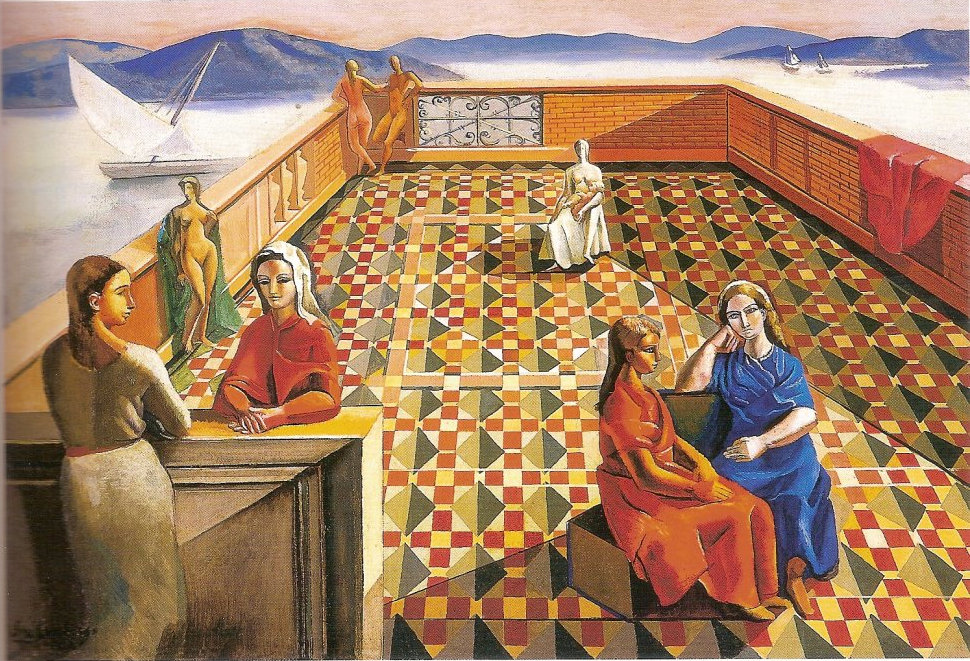
Lino Enea Spilimbergo (Argentina), La terraza (The Terrace), 1930.
In 1969, an interviewer asked Walsh about his politics. ‘Obviously, I have to say that I am a Marxist’, Walsh replied, ‘but a bad Marxist because I read very little: I don’t have time to educate myself ideologically. My political culture is more empirical than abstract’. This was an honest answer. Walsh’s instincts leaned toward the Cuban Revolution. He joined political organisations, but his heart was in journalism. When the military began to move in Argentina as part of the U.S. government’s Operation Condor, Walsh started the Clandestine News Agency (ANCLA) with Carlos Aznarez (who now runs Resumen Latinomericano) and Lila Victoria Pastoriza (who was tortured for two years by the military junta and now writes in Revista Haroldo). When Walsh’s daughter María Victoria, who was in the armed struggle against the dictatorship, and Alberto Molina were cornered by the army in Buenos Aires, they put their hands up and said, ‘ustedes no nos matan; nosotros elegimos morir’ (you do not kill us; we choose to die) and shot themselves. Then Walsh took out his typewriter and began writing his long letter to the junta, which he sent on the anniversary of the coup. It should be compulsory reading for everyone.
The tone of the letter is both empirical and fantastic:
In August 1976, a local resident who was diving in the San Roque Lake in Córdoba discovered what was essentially an underwater cemetery. He went to the police station, where they did not take his report, and he wrote to the newspapers, which did not publish it.
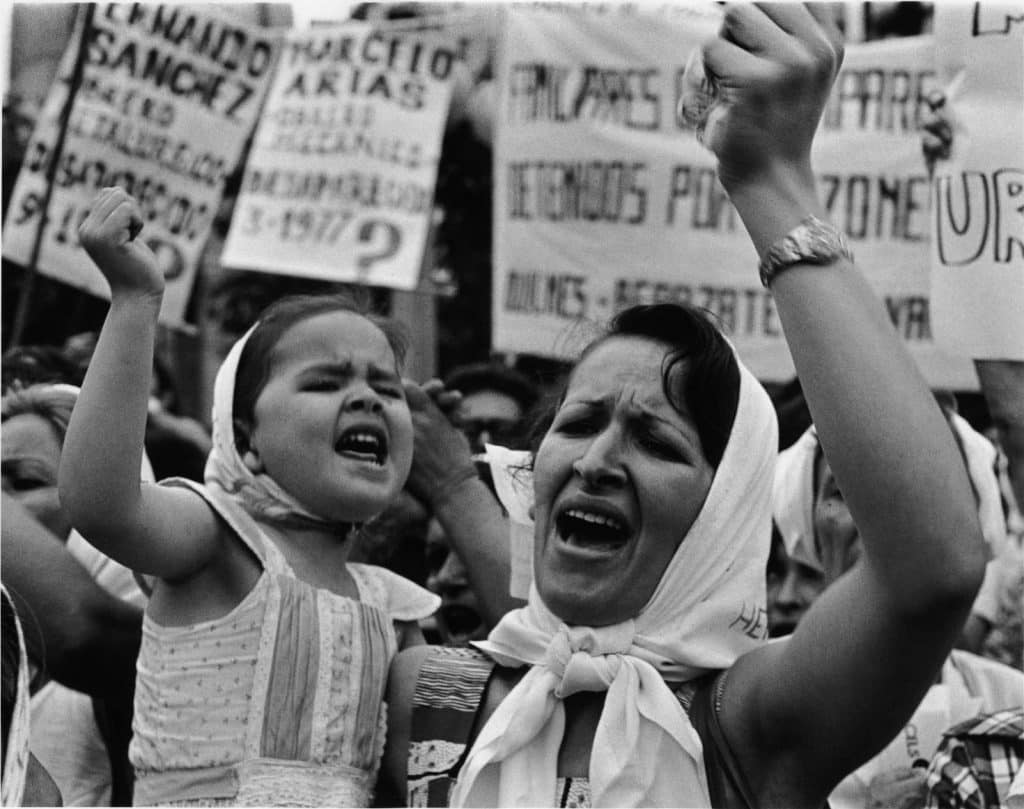
Adriana Lestido (Argentina), Madre e hija de Plaza de Mayo (Plaza de Mayo Mother and Daughter), 1982.
Newspapers do not publish the murders and imprisonments of our time either. They are starstruck with wonder at the Oscars and the Paris Fashion Week. They have no time for Milei’s libertarian madness, the destruction of institutions to benefit billionaires. If the media writes anything, the Mileis and Trumps call them ‘enemies of the people’, agents of this or that government.
Meanwhile, these monsters who wear human masks defraud their own people in the name of nationalism and deliver their national wealth to a class that no longer wants to share the planet with us. This is what Walsh would have written. It is what Walsh would demand we write in his place.
Warmly,
Vijay

